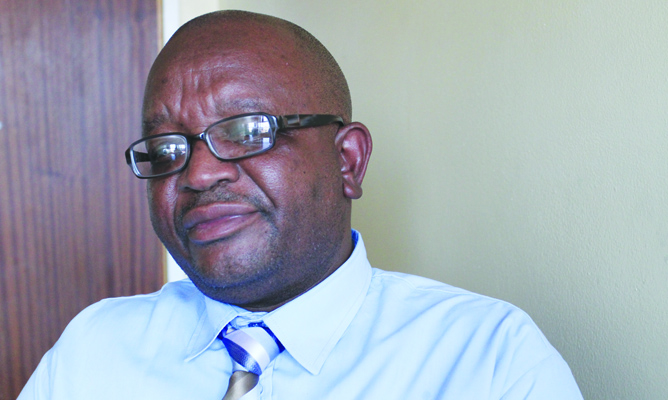
THE old carpenter stood at the open-air bar, overlooking the golf course at Elephant Hills Hotel. The hotel was virtually new and in the process of being commissioned. The carpenter had a slight frown on his face, as he nursed his drink while looking at the Zambezi River valley.
Tapiwa Nyandoro
“Our friends,” he said referring to the town of Livingstone in Zambia across the Zambezi, “are discharging raw sewage into the Zambezi.”
The hotel was to host some of the Commonwealth of Nations Heads of Government on sightseeing after their meeting in Harare, Zimbabwe.
The year was 1991.
The old carpenter, a practical man, and Zimbabwe’s Vice-President, had been given the task of ensuring that projects related to the meeting were completed on time. These included the villas in Harare’s Gunhill suburb, being constructed on virgin ground, to house the Heads of Government attending the meeting. It was a tall order, but amazingly he pulled it off, including helping the Zambians with their sewage works. If he was still around, he would be mortified to note that Harare now discharges some raw sewage straight into the source of its drinking water supplies. How times have changed!
A few years later, receiving a donation of some blankets at his Munhumutapa Building offices on behalf of some community, victims of a natural disaster, he narrated over a cup of tea, a story of a young Canadian who had come to see him. Zimbabwe’s reputation of being a grain producer had reached far and wide, and the young Canadian wanted to start a futures market in Zimbabwe. The carpenter, of course, would have none of it. “How could one buy or sell a crop that had not been harvested?” he had queried. It was a good joke to which the private sector executives making the donation laughed at endlessly until tears rolled down their cheeks. No one dared mention they had heard of the Chicago Board of Exchange. The bond note story reminded me of President Robert Mugabe’s point man in the early days of independence. What would he have said to Finance minister Patrick Chinamasa and central bank governor, John Mangudya on their initiative to introduce bond notes? Wouldn’t the two have left Munhumutapa Building in an undignified hurry? How can one secure the value of one’s “currency” by a borrowed facility? Why not just tell the truth, and that truth being we are launching our Zimdollar, the old man would have insisted. Why peg it at all to the US dollar, if it is going to be just one of the multi-currencies? Let it find its own value, I am sure, he would have argued. And he would be right: Why not?
- Chamisa under fire over US$120K donation
- Mavhunga puts DeMbare into Chibuku quarterfinals
- Pension funds bet on Cabora Bassa oilfields
- Councils defy govt fire tender directive
Keep Reading
If exporters want an incentive, and indeed they deserve one, reduce the royalties and other taxes they pay on export revenues. You do not need to borrow from the Africa Export-Import Bank for this kind of initiative, including printing bond notes, as has been mooted.
The complexity of the incentive scheme that revolves around bond notes breeds suspicion.
But Zimbabwe needs its own currency or a regional one at least. The problem, however, is that there is virtually no trust in the powers-that-be; whether it is at the Reserve Bank of Zimbabwe (RBZ) or at Treasury. Buhera South legislator Joseph Chinotimba, who has advocated the use of higher denomination bond coins, might, however, have received a good hearing from the old man.
Mint the coins from precious metals such as gold and platinum and they could hold a value of their own. With time, if properly done, they could even appreciate. And it may be better to keep the country’s gold and platinum reserves as coins and currency circulating in the market. The Reserve Bank of Zimbabwe can hardly be considered a safe place to keep reserves. Gold reserves, as some allegations go, were at some point, also not spared, being “sold” at some discount to some Arabs.
The desire by the central bank to control the use of foreign currency also raises suspicion. One of the enduring, but painful, memories of the colonial era was how impoverished farm and mine workers were, when compared to bankers, civil servants, and industry and commerce workers in towns. By studying the mine and farm workers’ lifestyles, you would never believe it was from these industries that the country’s foreign currency was earned or saved.
The foreign currency allocation system favoured urban dwellers and the elite, who hardly earned or saved any. Now we are back at it again. The bankers and industrialists, if not the politicians, “who know best” will decide who will access the remittances from our sisters and mothers working day and night in Kuwait.
When they send a little money home for the upkeep of their loved ones, will it be intercepted and given to connected ones, while they get a bond note? That would be evil. A better option is to auction foreign currency, so the little earned the hard way in the streets of Botswana, Kuwait or Johannesburg can buy as much as it should. It should not subsidise the fat cats again, as the currency controls the RBZ is re-introducing will do.
Instead of discharging sewage into the banking waters, let the bond note find its own value in the market.
It should be bought or received by those who want it without coercion. Only then would old SV Muzenda be a happy man.
Tapiwa Nyandoro can be contacted on [email protected] or [email protected]












